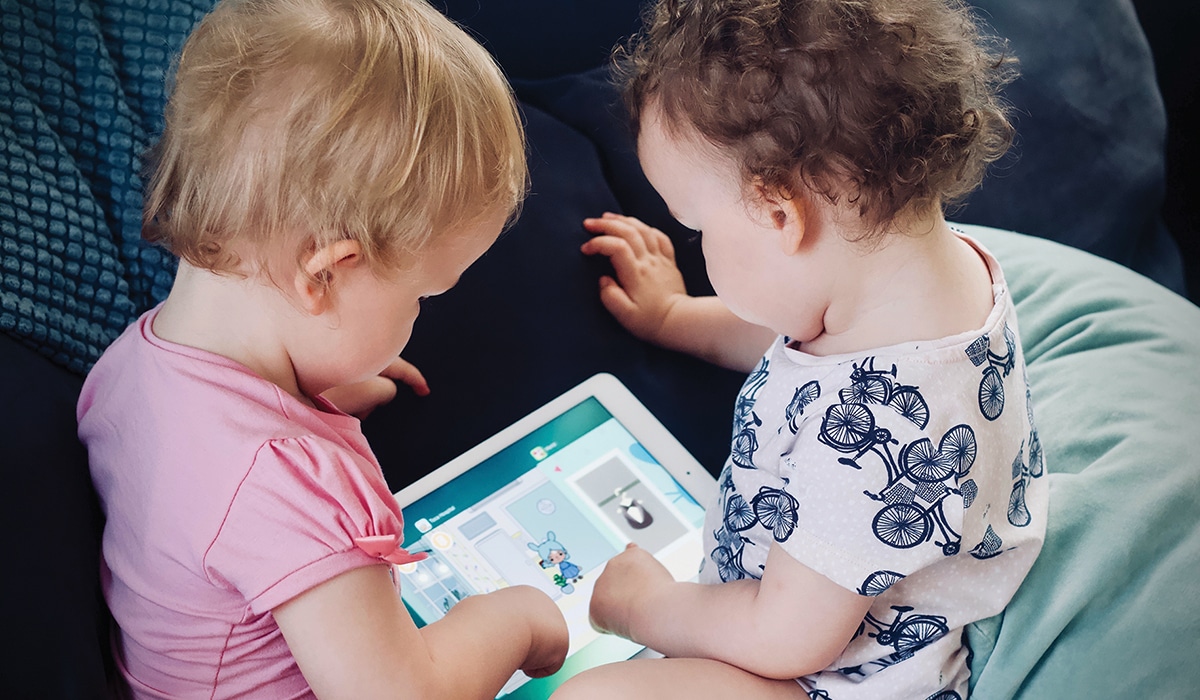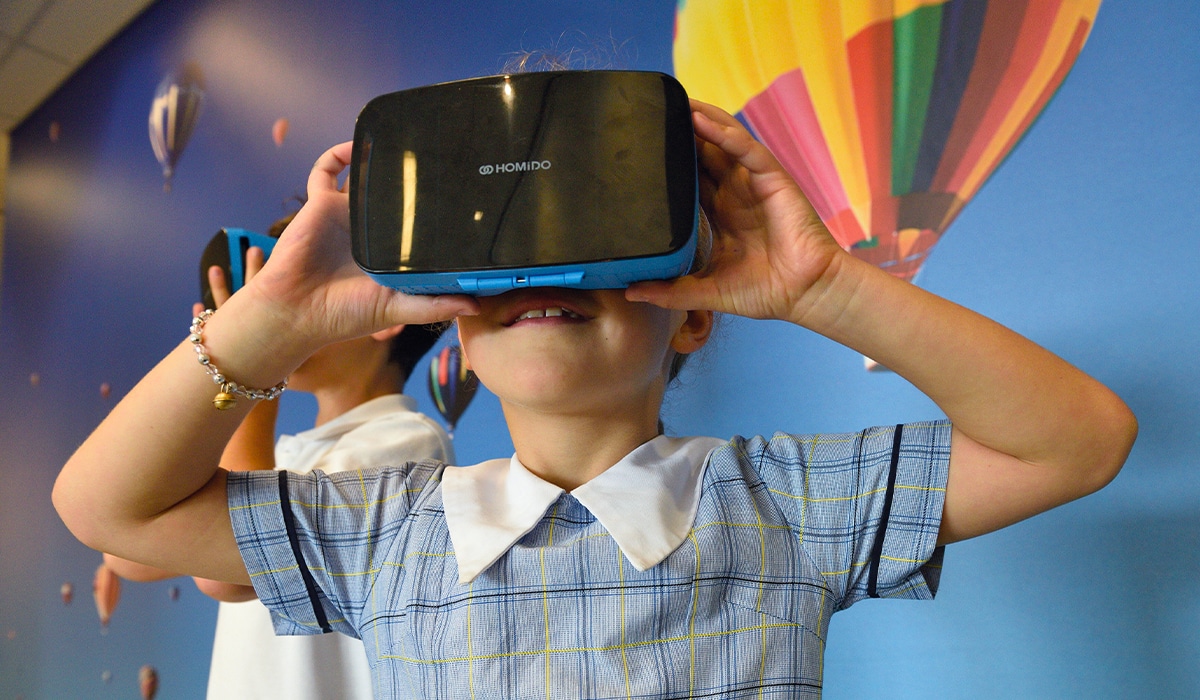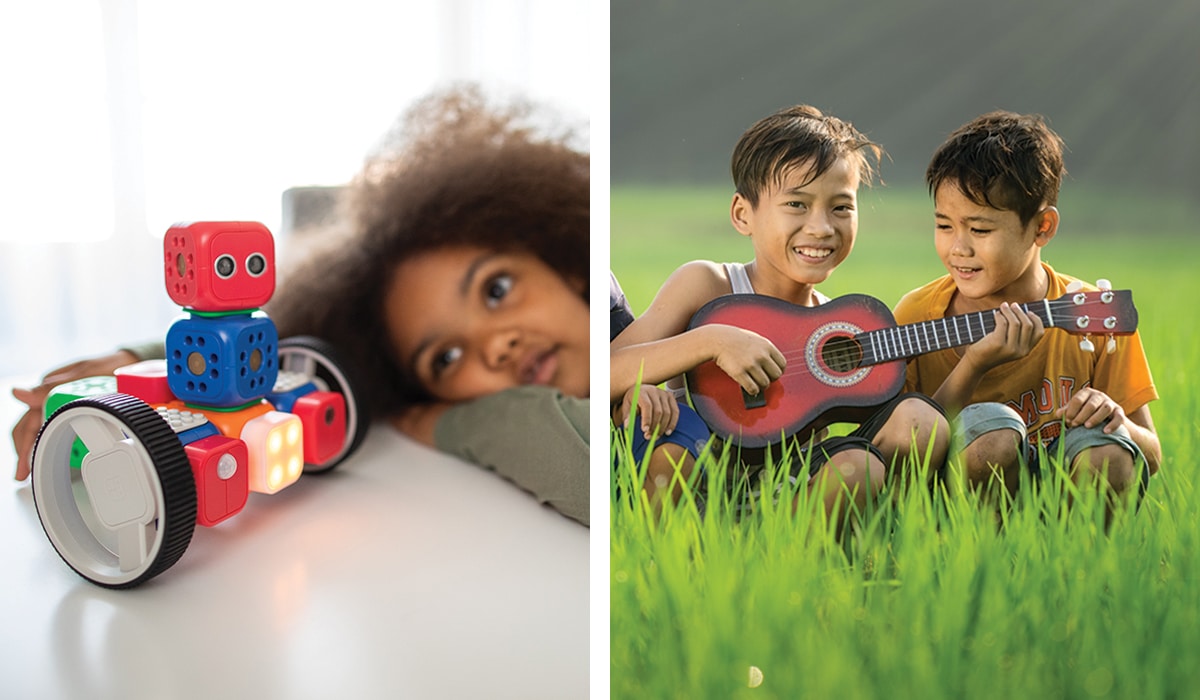More kids are playing games on consoles, phones and tablets than ever before. Games can help with brain development, but there is equally damning evidence that screen time is not good for kids. What’s a parent to do? We’ve got some answers.
School holidays are filled with play dates, family time, special outings and learning outdoors. And on other days, well, you wouldn’t expect to win any parenting prizes for the number of hours the kids have spent transfixed by the TV, PlayStation, smartphone or tablet.
Digital devices always do the trick when it comes to settling kids down, allowing caretakers a break from keeping them entertained. It’s no wonder they’ve become an almost indispensable part of so many household routines. But what might seem like an easy fix may just make life harder in the long run.
Screen time is not without its impacts on daily and family life, although parents, teachers and experts have a range of opinions on what those impacts are. So just how much screen time, if any at all, is healthy for growing brains? What toll does it take on children in the short term and the long run? There is no standard answer, so families should work together to find their own balance.
What the statistics say about screen time and kids
The stats in the wide web of parenting information, Google can send well-meaning parents down a rabbit hole of alarming studies and statistics on what screen time does to growing brains. They warn of games and gadgets causing behavioural issues, mood disorders and permanent developmental lags.
In 2018, UCT’s Sports Science Institute reported that, on average, South African children spend about three hours a day in front of screens. The report linked increased screen time to childhood obesity, citing exposure to adverts for unhealthy food and children choosing sedentary play over time outside.
Last year, The Guardian reported on a Canadian study that linked screen time to poor performance in development tests for children aged two to five. But with all the bad press screen time is getting, there are experts and parents who say there are benefits to children enjoying some leisure time on devices.
Teach your children how to use technology responsibly
Natalie Hutton is an educational psychologist in KZN with a special interest in the impact of gaming and digital media on children. She conducts talks for teachers and parents, and writes about the issue in her blog (nataliehutton.com).
“Failing to teach children how to use technology responsibly is failing to prepare them for the real world. The challenge we need to take up is teaching them how to manage technology,” writes Hutton in one blog post.
When it comes to what kids watch and for how long, Hutton believes parents need to reflect on their own values. “I encourage adults to take an interest in what their children are digesting digitally and to engage on those platforms.
Each family has their own culture and needs to decide what they deem appropriate content for their child, within the guidelines suggested by experts.” Hutton does refer parents to general guidelines from the American Academy of Paediatrics (AAP), which suggest no screen time at all for children under 18 months.
The AAP says that once screen time is introduced, parents should watch and play quality educational games with their kids aged two to six, and help them connect what they learn onscreen to the real world.
From age six onwards, screen time should be monitored and limited in accordance with how much time children spend sleeping, socialising and being active, according to the AAP. “They should always be doing much more of the latter,” says Hutton.
Instead of strictly managing gaming time, it may be more effective to focus on scheduling plenty of rest time, hobbies and physical play time. Whatever time is left over for games will not be such an issue.

Don’t forget to make room for quality content
Age restrictions are a good starting point for choosing appropriate content for your child. Common Sense Media, an American non-profit that researches media for kids, has an exhaustive list of quality games divided by age group (commonsensemedia.org). There are also other factors to consider.
Parents should choose games that encourage their children’s real-world interests, such as animals and science. Content should encourage critical thinking and problem solving in challenges at different levels that give youngsters a sense of achievement and satisfaction.
The importance of modelling good family habits
Modelling good digital habits starts with parents, who should be aware of their own screen time. Keep the consoles and devices in a common area of the house and watch and play with the kids to make sure they’re learning life-enhancing lessons.
“When parents observe any changes in their child’s behaviour, they should explore this with their child and come to an understanding of what he or she is experiencing,” says Hutton.
Words: Zanele Mji
Photography: Unsplash






